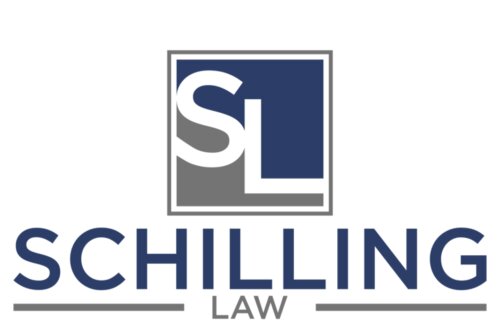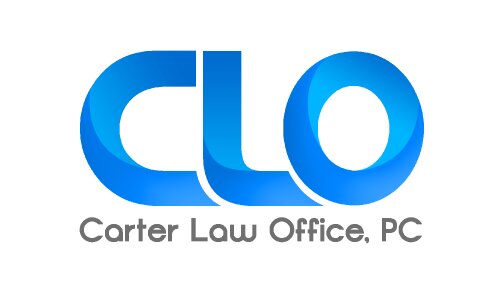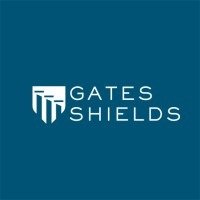Best Foreclosure Lawyers in Kansas
Share your needs with us, get contacted by law firms.
Free. Takes 2 min.
Free Guide to Hiring a Real Estate Lawyer
Or refine your search by selecting a city:
List of the best lawyers in Kansas, United States
About Foreclosure Law in Kansas, United States
Foreclosure is the legal process through which a lender seeks to recover the amount owed on a defaulted loan by taking ownership of and selling the mortgaged property. In Kansas, foreclosure is typically judicial, meaning that the process must go through the court system. Homeowners who fall behind on their mortgage payments may face foreclosure proceedings initiated by their lender. If the court finds in favor of the lender, the property is eventually sold at a public auction to satisfy the debt.
Why You May Need a Lawyer
Navigating foreclosure can be overwhelming and confusing. Here are some common situations where legal help can be crucial:
- You have received a foreclosure notice or a summons from the court.
- You believe the lender did not follow the proper legal procedures.
- You want to explore loss mitigation options such as loan modification, forbearance, or repayment plans.
- You suspect your lender has made an error in your account or billing.
- You want to negotiate a short sale or deed-in-lieu of foreclosure.
- You are interested in defending against the foreclosure in court.
- You face the risk of deficiency judgments after foreclosure.
- You want to understand your rights and responsibilities at every step.
Legal professionals with foreclosure experience can help you protect your interests, understand your options, and ensure that your rights are fully represented.
Local Laws Overview
Kansas foreclosure laws are unique and important to understand if you face this situation:
- Judicial Foreclosure: Most foreclosures in Kansas must go through the court system. The lender files a lawsuit, and the homeowner is served with a summons and complaint.
- Right to Cure: Homeowners usually have an opportunity to cure the default, typically up until the foreclosure sale takes place by paying the past due amount, fees, and costs.
- Redemption Period: Kansas law usually provides a post-sale redemption period, allowing the former homeowner to reclaim the property by paying the full sale price, plus costs, within a set timeframe (often 3 months after the sale, possibly up to 12 months in some cases).
- Deficiency Judgments: Lenders can seek deficiency judgments if the home is sold for less than what is owed, although there are legal restrictions and defenses available.
- Protections for Homeowners: Certain protections exist for homeowners, such as requirements for notice and opportunities to respond in court.
- Speed of Process: The timeline for foreclosure can vary, but the judicial process means it can take several months or longer from start to finish.
Frequently Asked Questions
What is Judicial Foreclosure?
Judicial foreclosure is a process where the lender must file a lawsuit in court to foreclose on your property. The court oversees the entire process, and you have an opportunity to respond and present any defenses.
How long does a foreclosure take in Kansas?
The process typically takes several months, often six months or longer from the first missed payment to the completion of a foreclosure sale. The court process, required notices, and redemption periods all add to the timeline.
What is the redemption period in Kansas?
After a foreclosure sale, homeowners often have a three-month redemption period to buy back the property by paying the full sale price and related costs. In certain circumstances, this period can be up to 12 months.
Can I stop a foreclosure once it has started?
Yes, you may be able to stop the foreclosure by curing the default, negotiating with the lender, applying for loss mitigation, or filing bankruptcy. Legal assistance can help you determine the best option.
Will I owe money after foreclosure?
If your home sells for less than the mortgage balance, the lender can seek a deficiency judgment for the difference. However, there are legal limitations and possible defenses.
Do I have to leave the home immediately after the sale?
Not necessarily. You may have the right to occupy the property during the redemption period. After that, the new owner must follow legal procedures to remove occupants, if necessary.
What steps should I take if I get a foreclosure notice?
Review the notice carefully, do not ignore it, and seek legal advice quickly. Respond to any court documents, keep records, and explore options such as loss mitigation or bankruptcy.
Can I negotiate with my lender during foreclosure?
Yes, many lenders are willing to work with homeowners to find solutions, such as modification, forbearance, or repayment plans. Legal counsel can assist with negotiations.
What is a deficiency judgment?
A deficiency judgment is a court order that requires a borrower to pay the remaining balance on a mortgage if the foreclosure sale does not cover the entire debt.
How can a lawyer help me with foreclosure?
A lawyer can help you understand your rights, defend you in court, assist with negotiations, and explore all available options, including possible alternatives to foreclosure.
Additional Resources
If you are facing foreclosure in Kansas, consider reaching out to the following resources for information and help:
- Kansas Legal Services - Provides legal assistance for homeowners facing foreclosure or eviction.
- Kansas Attorney General's Consumer Protection Division - Offers information about foreclosure scams and consumer rights.
- United States Department of Housing and Urban Development (HUD) - HUD-approved housing counselors can provide guidance on mortgage issues.
- Kansas Judicial Branch - Offers information on foreclosure procedures and court locations.
- Local Legal Aid Societies - Nonprofit organizations may provide free or low-cost legal advice and representation for eligible individuals.
Next Steps
If you are facing foreclosure or need legal advice about your options in Kansas, act promptly. Gather all relevant documents, such as mortgage statements, court notices, and correspondence from your lender. Consider reaching out to a qualified attorney who specializes in foreclosure law in Kansas. Many legal aid organizations offer consultations or representation based on need.
Early action is essential. Whether you want to contest the foreclosure, negotiate with your lender, or explore alternatives, professional legal guidance can make a significant difference in the outcome. Contact an attorney or a reputable organization as soon as possible to protect your rights and find the best course forward.
Lawzana helps you find the best lawyers and law firms in Kansas through a curated and pre-screened list of qualified legal professionals. Our platform offers rankings and detailed profiles of attorneys and law firms, allowing you to compare based on practice areas, including Foreclosure, experience, and client feedback.
Each profile includes a description of the firm's areas of practice, client reviews, team members and partners, year of establishment, spoken languages, office locations, contact information, social media presence, and any published articles or resources. Most firms on our platform speak English and are experienced in both local and international legal matters.
Get a quote from top-rated law firms in Kansas, United States — quickly, securely, and without unnecessary hassle.
Disclaimer:
The information provided on this page is for general informational purposes only and does not constitute legal advice. While we strive to ensure the accuracy and relevance of the content, legal information may change over time, and interpretations of the law can vary. You should always consult with a qualified legal professional for advice specific to your situation.
We disclaim all liability for actions taken or not taken based on the content of this page. If you believe any information is incorrect or outdated, please contact us, and we will review and update it where appropriate.
Browse foreclosure law firms by city in Kansas
Refine your search by selecting a city.













